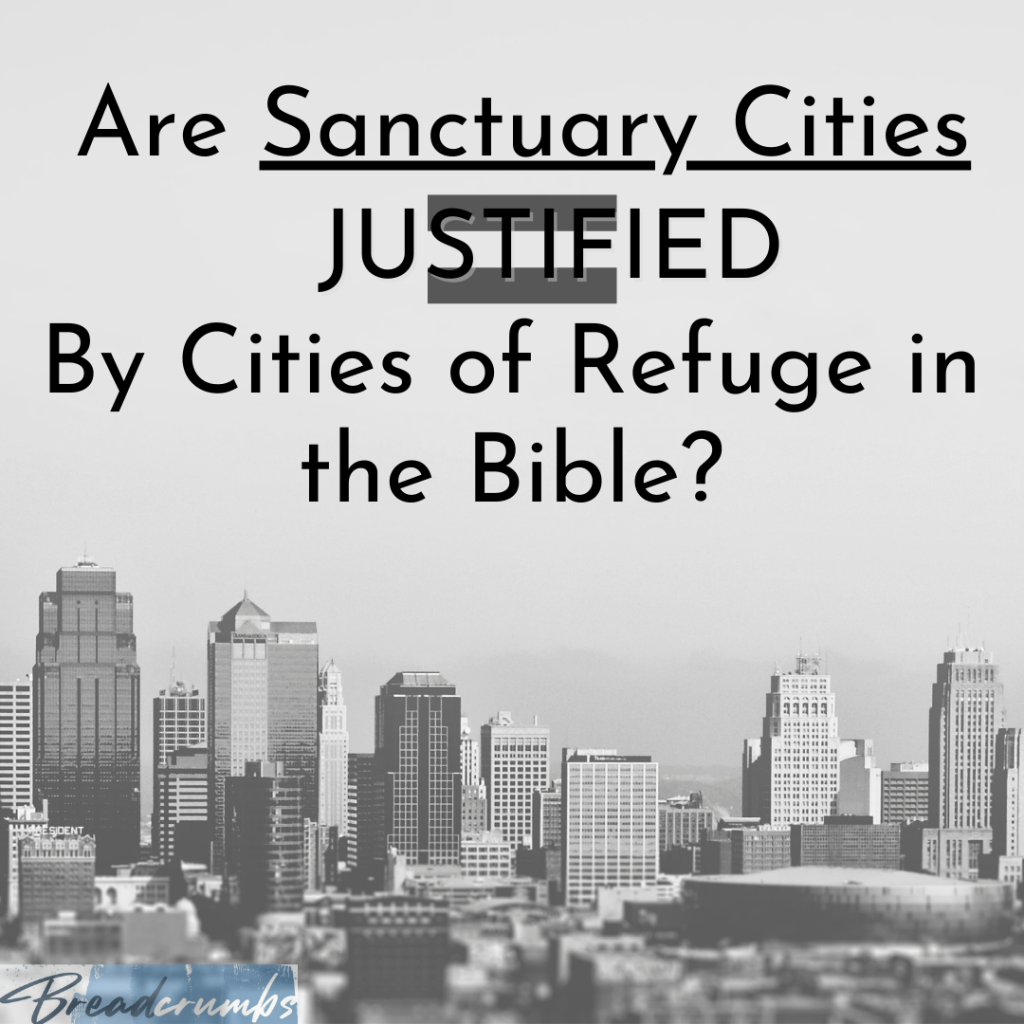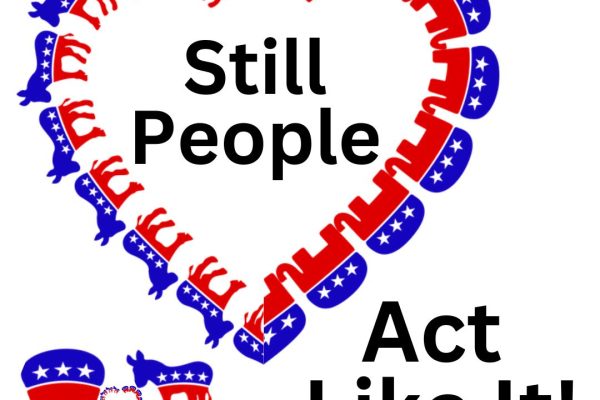
Let’s Talk About Cities of Refuge: Sanctuary Cities?
It is exciting when people bring up topics that are biblical or easily relate to Scripture. It can present opportunities to teach and learn. However, such opportunities have always had the potential to be destructive and misleading through improper application of seemingly associated themes. Let’s use the Old Testament concept of the Cities or Refuge to learn how to make proper applications and avoid the pitfalls of such comparisons.
God commanded Moses to establish cities of refuge. Perhaps you have heard them compared to the hot-button topic of sanctuary cities in the United States. A Journal Storage (JSTOR) article put it this way, under the heading of, Why Sanctuary Cities:
“The Bible, at Joshua 20:2, states ‘tell the Israelites to designate the cities of refuge [New International Version].’ Today, Christian churches advocate the Biblical values of mercy, compassion, hospitality, and forgiveness in their prosecution of a sanctuary movement.”
(https://daily.jstor.org/sanctuary-cities-as-old-as-bible/)
Are the similarities between the cities of refuge and U.S. sanctuary cities such that the latter can be seen as a moral imperative?
The first thing someone might notice is that the names are fine. The word “Refuge” has the idea of asylum. If the name is all we are going for, these would be good synonyms for each other.
Interestingly, of the 20 times it is used in the Old Testament, it always refers to these cities. So, if we want to see what is meant by this kind of asylum, the concise information about these cities can tie up the topic nicely. [Contrast this with a word study on “Bless,” where we must take each occurrence with its context to find if it means anything from “bless”, to “thank”, to “curse!”]
Let’s look at the Lord’s description of the cities in Joshua 20:1-6.
“Speak to the children of Israel, saying: ‘Appoint for yourselves cities of refuge, of which I spoke to you through Moses, that the slayer who kills a person accidentally or unintentionally may flee there; and they shall be your refuge from the avenger of blood. And when he flees to one of those cities, and stands at the entrance of the gate of the city, and declares his case in the hearing of the elders of that city, they shall take him into the city as one of them, and give him a place, that he may dwell among them. Then if the avenger of blood pursues him, they shall not deliver the slayer into his hand, because he struck his neighbor unintentionally, but did not hate him beforehand. And he shall dwell in that city until he stands before the congregation for judgment, and until the death of the one who is high priest in those days. Then the slayer may return and come to his own city and his own house, to the city from which he fled’” (Unless otherwise stated: Scripture is taken from the New King James Version®. Copyright © 1982 by Thomas Nelson, Used by permission. All rights reserved).
There are two prerequisites stated. For someone to appeal for such a city’s aid, he or she would have to have killed someone accidentally. That makes this relevant for an extremely narrow sample of any population. Further, this was an injunction upon Israel and has no authority that would make it incumbent upon Christians to build such a city.
Now, just because the Old Law is not binding to us today (Gal 3; Rom 7; Hebrews, etc.), it doesn’t mean that we should not learn from – and apply – the principles of it (Rom 15:4).
Could the government implement cities of refuge today? Certainly! But if they were like the ones in the Old Testament, they would be nothing like today’s sanctuary cities. To apply the model directly, these cities would provide a place where a citizen or visitor who accidentally kills someone could flee, find a fair trial, and live safely if he or she were found innocent.
Could a government assign different purposes for such cities? Sure. Perhaps these protections could be expanded to any accident. “Accident” is the key concept. Look at what God commanded to happen if the person who fled to a sanctuary city was found guilty.
“These six cities shall be for refuge for the children of Israel, for the stranger, and for the sojourner among them, that anyone who kills a person accidentally may flee there. But if he strikes him with an iron implement, so that he dies, he is a murderer; the murderer shall surely be put to death” (Num 35:15-16).
Cities of refuge are not for guilty people, nor can any principle regarding these cities be illustrative of a government, God, or God’s people protecting anyone who is guilty.
Does this rule out the love and compassion that should be shown by every Christian? Absolutely not!
Then, what is our part in the government’s dealings in sanctuary cities?
Here’s where I am seeing mass confusion reign.
The Jewish law concerned itself with a physical nation that had physical and spiritual promises. As such, there were laws regarding a physical government that included all of the necessities of such government (punitive law, infrastructure, land laws, etc.)
The law of Christ is for a spiritual nation with spiritual promises living in a physical world (John 18:36; Phil 3:10). We have no direct means to punish or otherwise dissuade crime but to teach the gospel in love, with the desire that even our worst enemies would hear it and be saved (self-defense is not a punishment or retaliation, a topic for another article, Matt 5:43-45; 2 Tim 2:24-26).
The teachings of the New Testament make it clear that Christians are to be the suppliers of compassion and mercy while the government is responsible for administering justice (Rom 13:1-7). As such, Christians must submit to the government in so much as it is not in conflict with the faith of God.
If sanctuary cities are government-given options of places where innocent people may go to find safety and await a fair trial, it becomes a matter of opinion if that is the most effective means to accomplish such a goal. A Christian may agree or disagree, but he or she has no right to be unChristlike in doing so.
If it can be established that these cities promote crime rather than protect the innocent, a Christian would have a strong case to oppose them using whatever means are appropriate, but it should not change how we treat anyone who lives in or agrees with the cities.
Let’s stop using weak Bible connections to justify something just because we like it.
Let’s stop labeling people because they believe other ways are better to show compassion.
If we disagree, let us come together with clear reasons, established by facts, and discuss them with humility and kindness. Calling for compassion while mistreating others is self-defeating.
In a time when you feel too small to protect and help everyone, you can be a sanctuary to someone. Show everyone you influence the kindness you want to see in the world.
-Van




